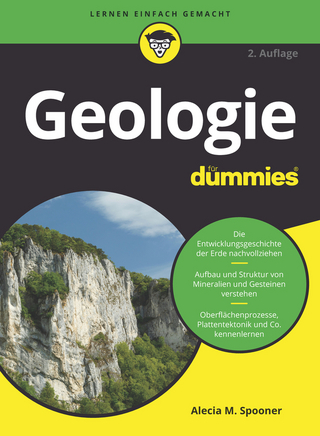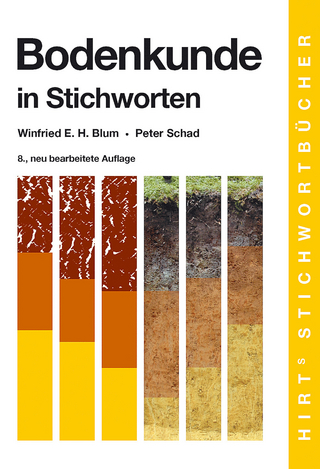
Nanomaterials and Nano-Biochar in Reducing Soil Stress
Apple Academic Press Inc. (Verlag)
978-1-77491-707-7 (ISBN)
- Lieferbar (Termin unbekannt)
- Versandkostenfrei innerhalb Deutschlands
- Auch auf Rechnung
- Verfügbarkeit in der Filiale vor Ort prüfen
- Artikel merken
Soil deterioration, loss of productivity, and increases in toxic elements in soil induced by rapid industrial development and intensive cultivation are posing a serious threat to global food security and environmental sustainability. Nanotechnology has the capacity to expand current cultivation practices in a sustainable way. This new book details the potential this novel technology has to reduce soil pollution, enhance crop production, promote sustainable agriculture, and ultimately ensure food security. The book emphasizes how nano-biochar technology can be implemented to enhance microbial activities and other soil organism functionalities by applying or combining agricultural practices and soil health-improving amendments.
Exploring the most promising carbon-rich material, that is, biochar, and more effectively, nano-biochar, this book covers the characteristics, production and benefits of nano-enhanced biochar. The role of nanobiochar in metal stress reduction, for soil health improvement, as a soil conditioner, in reducing soil stress using integrated approaches, for improving nutrient use efficiency, in salinity stress management, for sustainable crop production, and for arsenic remediation are all considered in detail. Starting with an introduction to nano-biochar, the book goes on to detail its benefits, its conditioner-like effect on soil, its role in improving soil health and reducing soil stress, how it improves nutrient use capacity in soil and its ability to alleviate salinity, heavy metal stress, and arsenic remediation in crops.
With its comprehensive coverage of the important topic of biochar and nano-biochar, the book will prove useful to companies, students, professors, researchers, and scientists who are interested in the topic of soil stress management and sustainable agriculture as well as policymakers who can recommend novel agriculture amendments.
Vishnu D. Rajput, PhD, is Lead Researcher (Associate Professor) at Southern Federal University. With his vast experience and experimental work, he has detailed the state of research in environmental science regarding how nanoparticles/heavy metals interact with plants, soil, microbial community, and the larger environment as well as possible remediation technology using nanoparticles/nano-biochar. Dr. Rajput has published over 325 scientific publications, including nearly 200 peer-reviewed full-length articles, 16 books, and many chapters and conference papers. He is an internationally recognized reviewer, having reviewed over 200 manuscripts. He is a journal editorial board member and is a co-principal investigator on several grants on the state of contaminated soils and plants using synchrotron methods. Tatiana M. Minkina, PhD, is the Head of Soil Science and Land Evaluation Department of Southern Federal University. Her area of scientific interest is soil science, biogeochemistry of trace elements, environmental soil chemistry, soil monitoring and assessment, and modeling and remediation using physicochemical treatment methods. Dr. Minkina was awarded in 2015 with a Diploma of the Ministry of Education and Science for her many years of work for the development and improvement of the educational process and for her significant contribution to the training of highly qualified specialists. She is a member of many professional societies. She has published over 750 papers (389 in English).
1. Nano and Nano-Biochar: Overview, Production, and Characteristics 2. Benefits of Nano-Enhanced Biochar 3. Nano-Biochar: A Soil Conditioner for Sustainable Soil Health 4. Role of Nano-Biochar and Biochar-Based Nanocomposites for Improving Soil Health: Application and Benefits 5. Nano- and Nano-Biochar in Reducing Soil Stress: An Integrated Approach for Sustainable Agriculture 6. Enhancing Nutrient Use Efficiency Through Nano-Biochar 7. Role of Nanoparticles and Nano-Biochar in Reducing Salinity Stress for Improving Soil Health and Sustainable Crop Production 8. Role of Nano-Biochar for Improving Soil Health 9. Nano-composites and Nano-Biochar: A Novel Solution to Alleviate Heavy Metal Stress in Crops 10. Arsenic Remediation in Rice Through Biochar-Nanoparticle Composites
| Erscheinungsdatum | 18.10.2024 |
|---|---|
| Zusatzinfo | 14 Line drawings, color; 8 Line drawings, black and white; 2 Halftones, black and white; 14 Illustrations, color; 9 Illustrations, black and white |
| Verlagsort | Oakville |
| Sprache | englisch |
| Maße | 156 x 234 mm |
| Themenwelt | Naturwissenschaften ► Geowissenschaften ► Geologie |
| Technik | |
| Weitere Fachgebiete ► Land- / Forstwirtschaft / Fischerei | |
| ISBN-10 | 1-77491-707-6 / 1774917076 |
| ISBN-13 | 978-1-77491-707-7 / 9781774917077 |
| Zustand | Neuware |
| Haben Sie eine Frage zum Produkt? |
aus dem Bereich


